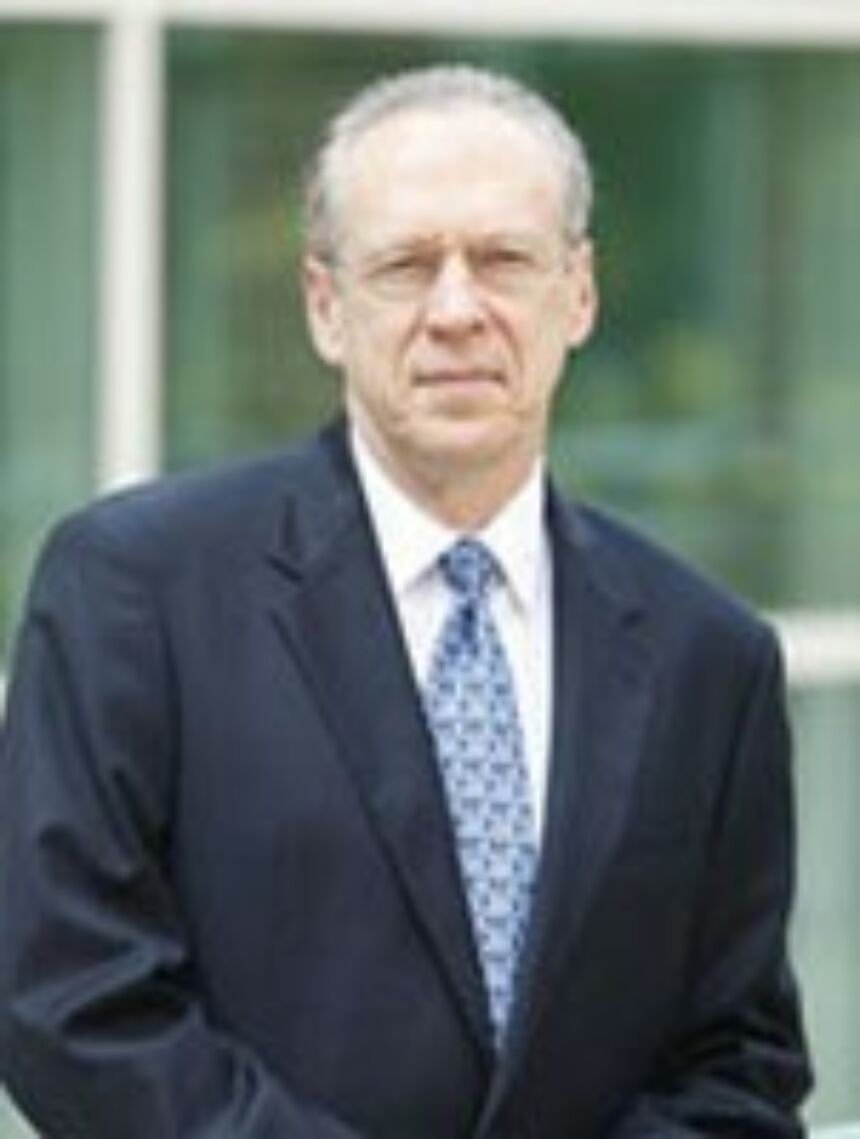November 03, 2014
Former U.S. ambassador and School of International Affairs professor shares insights on building a career in diplomacy

UNIVERSITY PARK, Pa. -- Dennis Jett, Penn State School of International Affairs professor and former U.S. ambassador to Peru and Mozambique, spoke to undergraduate students on Tuesday about the Foreign Service. In his talk “So you want to be a diplomat? Building a Career with the U.S. State Department,” Jett laid out the necessary qualifications and expanded on his own experience. The event was co-sponsored by the Penn State School of International Affairs, Schreyer Honors College and the College of Liberal Arts.
Jett explained that while the only requirements to take the written exam to enter the Foreign Service are that the person be a U.S. citizen between the ages of 20 and 59, the process is long and rigorous. About 20,000 take the test each year, but only about 350 people will be hired.. Jett recommended that candidates for a job as a Foreign Service officer have a passion for travel and foreign cultures, and a readiness for possible danger.
Speaking to about 30 students at the Grandfather Clock Lounge in Atherton Hall, Jett mentioned some of the intrigue and excitement that comes with the job. As U.S. ambassador to Peru and Mozambique, and working in Washington and embassies in Argentina, Israel, Liberia, and Malawi, Jett traveled to over 50 countries and met dignitaries such as Nelson Mandela, President Bill Clinton, President Jimmy Carter, Vice President Al Gore, and Pope John Paul II.
“Some people think all there is to being a diplomat is going to endless cocktail parties and not paying parking tickets,” said Jett. “In reality, it’s constant travel to new places, changing jobs, learning new cultures and languages; talk about lifelong learning, well this is it in spades.”
Jett also spoke of some of the dangers of the job that he experienced during his 28 years as a Foreign Service officer. There was the time he had to deal with the situation when terrorists took hundreds of people hostage, including many of his staff, at a diplomatic reception that he had just left. He once had to respond to an influx of more than 500,000 Mozambican refugees to Malawi. He also helped negotiate and implement peace accords and has visited Americans in prison in Latin America and Africa.
“Yes, there are some dangers,” he said. “But once in a while, for example, when you get the president of Peru and the president of Ecuador sign an agreement ending a long-running border dispute, then you get to see diplomacy actually work.”
Jett highlighted the five career tracks of Foreign Service from which candidates can choose when applying to the State Department: consular, economic, management, political, and public diplomacy. If candidates are unsure about which area is right for them, the State Department website has quiz to help recommend a specific track (http://careers.state.gov/work/foreign-service/officer/career-track-quiz).
Jett joined the School of International Affairs in 2008 after his career in the U.S. Foreign Service and eight years at the University of Florida. His experience and expertise focus on international relations, foreign aid administration, and American foreign policy. His career abroad began in 1973, when he was a political officer in the U.S. Embassy in Buenos Aires, Argentina. He later spent several years in Africa, first as the deputy chief of mission in the U.S. Embassy in Malawi, and then as deputy chief of mission in the U.S. Embassy in Liberia, where he was the second ranking officer during the Liberian Civil War.
Jett then became special assistant to the president and senior director for African Affairs at the National Security Council, where he was responsible for Africa policy during the first six months of the Clinton Administration. He went on to serve as the U.S. ambassador to Mozambique (1993-1996) and Peru (1996-1999).
Jett was the Diplomat in Residence at the Carter Center in Atlanta from 1999 to 2000, through which he led election observation missions to Venezuela and Guatemala and conflict resolution efforts between Uganda and Sudan. He then retired from the Foreign Service and became the first Dean of the International Center at the University of Florida.
